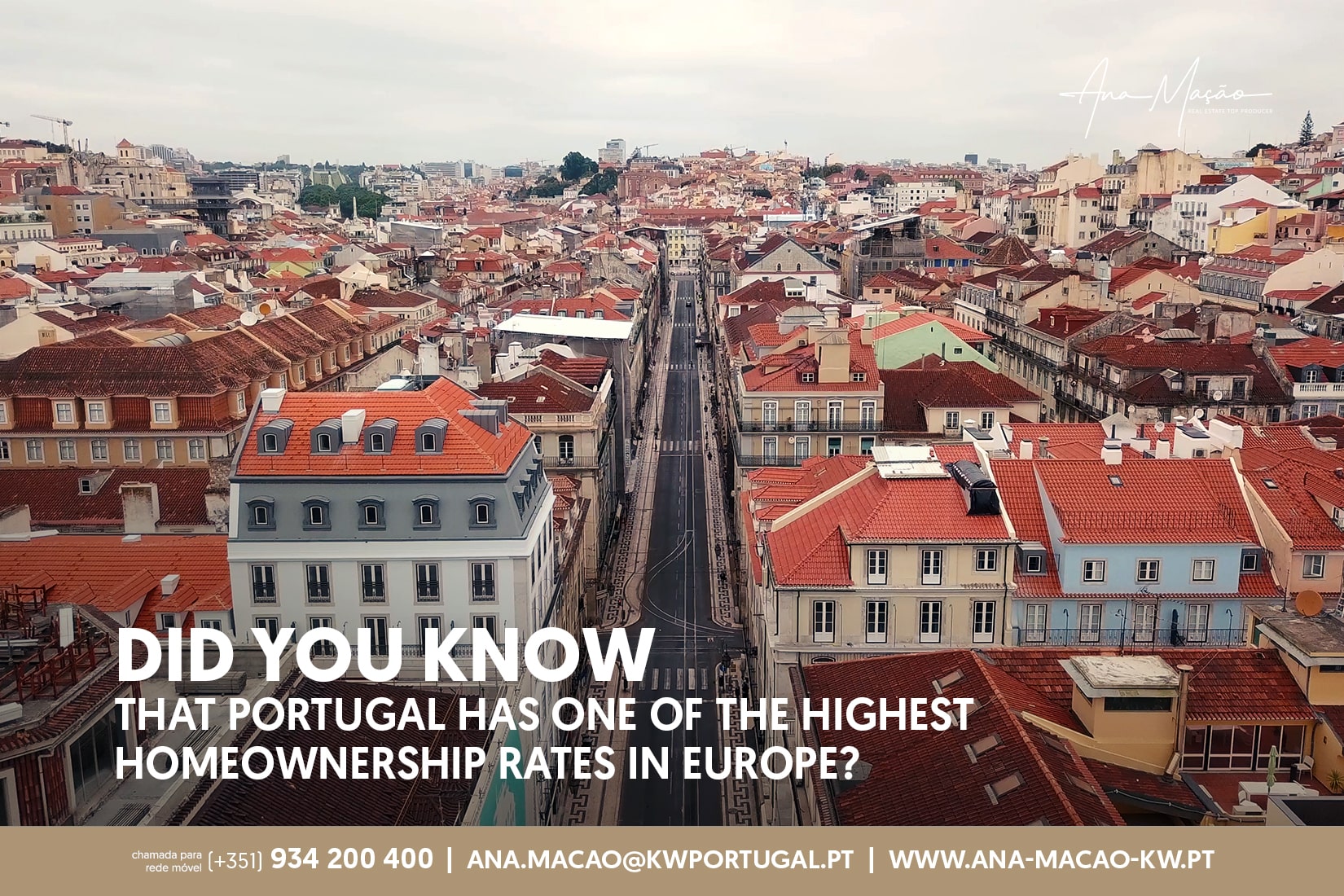Did you know that Portugal is one of the European countries where most people own their own home? It's true! This passion for tiles and backyard goes beyond the dream of a little house. But why? And what does this mean for the future? Let's analyze a bit of this topic.
According to recent data from Eurostat, about 77% of Portuguese families own their homes. This impressive number places us well above the European average, which is around 69%. But how did we get here and what does the future hold for us? Let's explore!
Statistics and Comparisons
When we compare Portugal with other European countries, the difference is remarkable. While the average homeownership rate in the European Union in 2023 was around 70%, in Portugal, this figure was 76%. Countries like Germany and France, with stronger economies, present lower rates. The table below illustrates this difference:
Percentage of Homeowners and Renters in Europe, 2023
| Country | Homeowners (%) | Renters (%) |
|---|---|---|
| Romania | 95.6 | 4.4 |
| Slovakia | 93.6 | 6.4 |
| Croatia | 91.2 | 8.8 |
| Hungary | 90.5 | 9.5 |
| Lithuania | 88.8 | 11.2 |
| Poland | 87.3 | 12.7 |
| Bulgaria | 86.1 | 13.9 |
| Latvia | 82.8 | 17.2 |
| Estonia | 80.7 | 19.3 |
| Norway | 79.2 | 20.8 |
| Czechia | 76.0 | 24.0 |
| Portugal | 76.0 | 24.0 |
| Spain | 75.3 | 24.7 |
| Italy | 75.2 | 24.8 |
| Slovenia | 75.2 | 24.8 |
| Malta | 74.7 | 25.3 |
| Belgium | 71.9 | 28.1 |
| Greece | 69.6 | 30.4 |
| Ireland | 69.4 | 30.6 |
| Netherlands | 69.3 | 30.7 |
| European Union | 69.2 | 30.8 |
| Finland | 69.2 | 30.8 |
| Cyprus | 68.8 | 31.2 |
| Luxembourg | 67.6 | 32.4 |
| Sweden | 64.9 | 35.1 |
| France | 63.1 | 36.9 |
| Denmark | 60.0 | 40.0 |
| Turkey | 56.2 | 43.8 |
| Austria | 54.3 | 45.7 |
| Germany | 47.6 | 52.4 |
| Switzerland | 42.6 | 57.4 |
To get a clearer idea, it’s important to analyze some specific cases:
- Portugal: 76% of families own their homes.
- Spain: 75%, a value similar to Portugal. Cultural, political, and economic similarities contribute to this.
- Germany: Only 48%, standing out as one of the countries with the highest proportion of renters.
- Italy: 75% of Italians own their homes, confirming this trend in Southern European countries.
- France: The French, in addition to having a lower rate (63%), have a greater supply of social housing and high rental figures.
- EU Average: 69% of Europeans own their homes.
Despite the 2008 financial crisis and the recent rise in living costs, Portuguese people continue to prefer homeownership, even if it means dedicating a significant portion of their family budget over long periods (up to 30 years).
Historical and Cultural Causes
But why do the Portuguese have this "passion" for buying a house? The reasons are many and range from historical motivations to cultural mentality:
- Public policies after the April 25th Revolution: In the 80s and 90s, access to credit was facilitated. Banks offered loans with very attractive conditions, to which were added state bonuses, promoting the purchase of own housing.
- Culture of security: Buying a house is seen as a form of stability and security. Many Portuguese believe that "it is better to pay the installment to the bank than rent to the landlord."
- Lack of alternatives in renting: For decades, the rental market in Portugal was stagnant (and still partially is) due to old and unprofitable rent contracts for landlords, as well as rules and regulations that hinder market functioning.
- Rural legacy: Historically, older generations had the habit of building or inheriting houses, especially in rural areas. This behavior has persisted over time.
Future Trends
However, will this scenario remain? There are signs that something is changing:
- Rental market on the rise: In recent years, renting has gained popularity, especially among young people in big cities like Lisbon and Porto. This is partly due to the increasing house prices and difficulties in accessing credit.
- Shift in priorities: Younger generations value mobility and flexibility more. Buying a house is no longer as clear a priority as it once was.
- Rising prices: House prices have been rising dramatically, especially due to foreign demand, tourism, and immigration, making it increasingly difficult for Portuguese people to buy a house.
- Institutional investments: Companies and real estate funds are heavily investing in the rental market, increasing the supply and potentially making it more competitive.
- Increase in municipal supply: According to SEDES, only 2% of the national housing stock consists of public housing, a value well below the European average. For example, in the Netherlands, Austria, and Denmark, the percentages of public housing exceed 20%. With European funds from the Recovery and Resilience Plan, there has been a significant effort to increase the construction of municipal housing, aiming to expand the supply of municipal rentals.
Conclusion
Portugal is undoubtedly a country of homeowners, but economic and cultural changes are reshaping this scenario. While homeownership remains a goal for many families, the reality of high prices and the new priorities of younger generations may lead to an increase in the rental market in the coming years.
Whether you are thinking of buying or renting, the important thing is to plan well and decide based on your financial situation and life goals. After all, home is where the heart is, but also where finances make sense!




